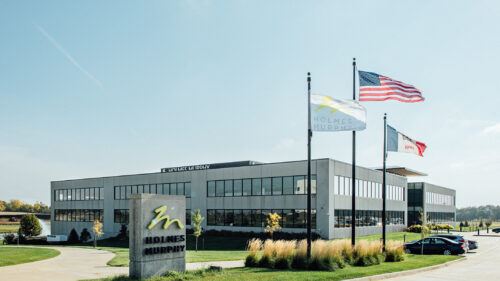The Industrial Revolution — ever heard of it? Undoubtedly you have. At some point, everyone in school likely wrote a report about textile mills and steam power, and how they changed the course of history.
You may be surprised to find out we’re currently in the 4th industrial revolution. It’s called “Industry 4.0,” and some people refer to it as “smart manufacturing.” Manufacturers are using cloud computing, machine learning, and the Internet of Things (IoT) to develop true smart facilities. It is complex, impressive, and challenging.
How Does Industry 4.0 Work?
The idea is that manufacturers (and other industries) can use large amounts of data and connectivity throughout multiple business channels and aspects of their production facilities to increase automation, efficiency, and production.
Most are familiar with AI and the use of robots, but this goes far beyond that. Consider every machine and stage of the production process communicating with each other simultaneously and instantly. This includes external sources like suppliers, logistics coordinators, warehousing… all the way down to end-user data.
The digital advancements that coincide with Industry 4.0 bring amazing opportunities for businesses. Obviously, there are some serious hurdles standing in the way — cost being one of them.
Industry 4.0 and Insurance Implications
When it comes to insurance, it needs to match your business. It comes as no surprise that as manufacturers evolve, it impacts their risk management strategies. In some ways, these advancements reduce risk and could decrease rates, but in others, there is much greater exposure than ever before. Here’s a few considerations from the insurance perspective:
Equipment and Machinery
No matter what, the investment in new equipment is costly. Machinery that will support the needs of a modern smart facility will likely be of higher value than the current equipment in the facility.
Yes, companies will pay more to insure more expensive equipment, but the benefit likely outweighs the cost. Smarter machines can communicate mechanical issues before they become significant, preventing extended downtime and business interruption costs. Equipment like this could drive down the cost of claims in those areas, and eventually pricing should follow suit.
Employees
This is a major area where I see the potential for risk reduction.
First, more advanced machines should require less employees. While some may get defensive about machines replacing people, consider that the labor shortage is one of the biggest challenges in the manufacturing industry and has been for some time. Many factories operate under capacity due to workforce shortages.
Also, the data we are now able to collect on employee movement shows significant signs of reducing injuries on the job. More advanced equipment will likely go hand in hand with less manual effort to do the job. They are also less likely to malfunction or to allow employees to work around lockout/tagout mechanisms and safety features. These things line up well to drive down workers’ compensation costs.
Cyber Security
The most obvious and complicated concern surrounding Industry 4.0 implementation is cyber security and IT support.
When the efficiency of an entire facility depends on data and connectivity, a disruption at any stage can result in a massive loss of time and money. Companies will have to invest more heavily in IT, along with software. They must also invest in cyber security and insurance.
Manufacturers have become prime targets for bad actors using ransomware and other similar tactics to interrupt operations and make large monetary demands. The more a company digitizes their business, the more exposed they are to cyber claims.
Frankly, the amount of damage a hacker could inflict on a business operating as a smart facility is terrifying. I would expect the underwriting scrutiny and rising rates to continue in the market, especially as businesses rely more on automation and instant connectivity.
Adapting Your Risk Management for Industry 4.0
If your business is exploring new technologies and taking the steps towards “smart manufacturing,” you may have questions about how to adapt your risk management program.
Holmes Murphy is here to help ensure that as your business gets smarter, your insurance does too. So, just reach out to us and let’s start the conversation.







